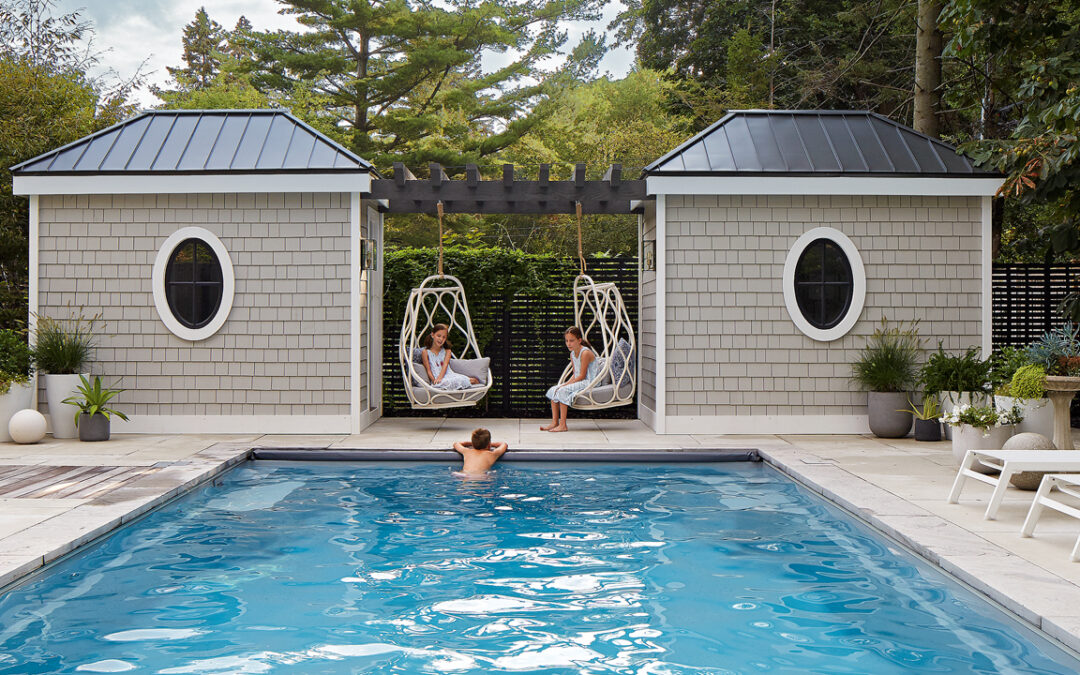Owning a pool is a luxury that comes with responsibilities, one of which is to learn how to clean a pool effectively. A well-maintained pool not only enhances the value of your home, it also provides a safe and enjoyable environment for family and guests. In this guide, we’ll introduce you to the best practices and techniques needed to maintain your pool’s sparkle.
Understanding how to clean a pool involves more than just skimming debris off the surface. It requires a structured approach that includes regular monitoring, cleaning routines, and the use of appropriate chemicals to ensure water safety and clarity. Let’s dive into these aspects to equip you with the knowledge and skills to maintain your pool.

1. Understanding Pool Maintenance Needs
The first step in how to clean a pool is understanding your pool’s unique maintenance needs. Pools differ in size, type, and additional features, all of which can affect cleaning routines.
The Importance of Regular Pool Maintenance
Regular maintenance is key to preventing long-term issues and expensive repairs. Establishing a cleaning schedule and understanding the filtration system’s functionality are essential.
Type of Pools and Cleaning Differences
Different pools, such as above-ground, in-ground, or saltwater pools, require specific cleaning techniques. Tailor your routine to fit the pool’s unique requirements.
2. Essential Pool Cleaning Equipment
Proper equipment makes pool cleaning easier and more effective. Familiarize yourself with tools such as skimmers, vacuum heads, and pool brushes.
Choosing the Right Tools
Invest in quality equipment that matches the size and type of your pool to ensure efficient cleaning. A quality drill press can even assist in maintaining equipment needed for pool care.
Keeping Your Equipment in Good Condition
Regularly inspect and maintain your pool equipment to ensure it performs optimally. This avoids additional costs and prolongs the life of the tools.
3. Steps to Clean Your Pool
Understanding the correct steps to clean a pool ensures the process is thorough and efficient.
Skimming and Scrubbing
Start by skimming the surface to remove debris and leaves. Use a pool brush to scrub the walls and floor, removing algae and grime.
Vacuuming the Pool
Regular vacuuming ensures no dirt settles at the bottom. Whether using an automatic or manual vacuum, this step is crucial for deep cleaning.
Managing Water Chemistry
Maintaining the right water balance is essential in pool maintenance. Regularly test for pH levels, alkalinity, and chlorine to ensure a sanitized swimming environment.
4. Chemical Treatment and Balancing
Chemical balance is central to pool cleaning, ensuring the water remains safe and clear.
Identifying Essential Chemicals
Familiarize yourself with essential chemicals such as chlorine, algaecides, and pH balancers. Each plays a crucial role in maintaining water hygiene.
Testing and Adjusting Chemical Levels
Regular testing using a reliable kit is vital. Adjust chemicals based on results to prevent irritation and ensure swimmer safety.
5. Troubleshooting Common Pool Problems
Even with diligent maintenance, pools can encounter common issues. Addressing these promptly prevents further complications.
Dealing with Algae Growth
Algae can quickly spread, so regular brushing, vacuuming, and chemical treatments are crucial to prevent its proliferation.
Handling Filter Issues
A malfunctioning filter can cause murky water. Regularly check and clean filters to ensure they operate efficiently.
6. Sustainable Pool Maintenance Practices
Implementing eco-friendly pool cleaning practices is beneficial for both the environment and your budget.
Using Energy-Efficient Equipment
Consider upgrading to energy-efficient pumps and heaters, which can significantly reduce energy consumption and costs.
Environmentally Friendly Chemicals
Opt for biodegradable chemicals that offer effective cleaning without harmful environmental impact.
7. Hiring Professional Pool Services
Sometimes professional expertise is necessary, especially if encountering challenging pool maintenance issues.
When to Call a Professional
If persistent problems arise or routine maintenance becomes unmanageable, a professional may be needed to ensure thorough care.
Evaluating Pool Service Providers
Choose service providers with good reputations, reasonable pricing, and flexible service packages.

FAQs
How often should I clean my pool?
Regular skimming and chemical tests should be performed weekly. Vacuuming and deep cleaning may be necessary more frequently during heavy use.
What is the ideal pH level for pool water?
The recommended pH level ranges from 7.2 to 7.8 to safeguard skin and eyes.
Can I use household cleaning products in my pool?
Using pool-specific chemicals is crucial for maintaining the water’s safety and integrity. Avoid household cleaning products that can harm the pool’s balance.
This article contains affiliate links. We may earn a commission at no extra cost to you.

